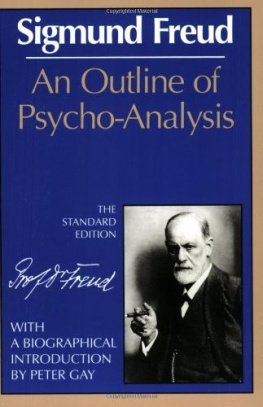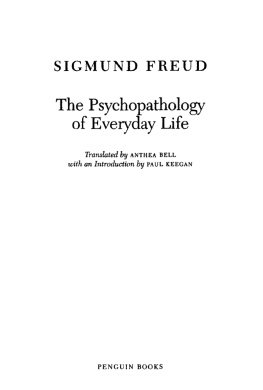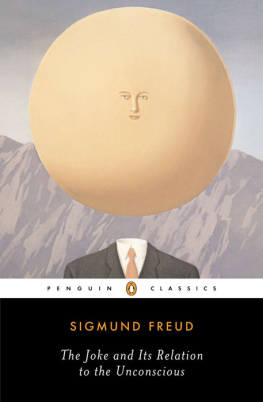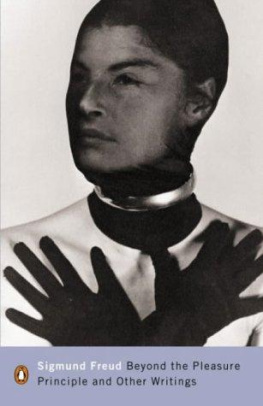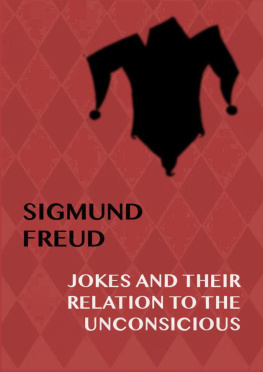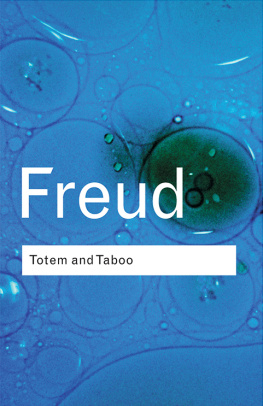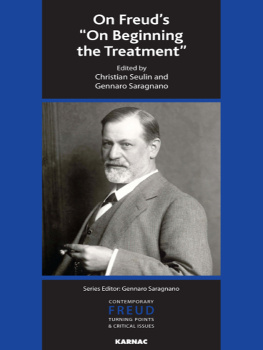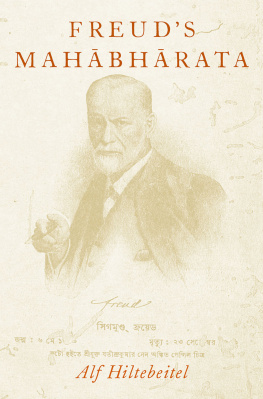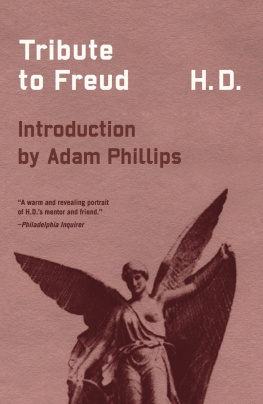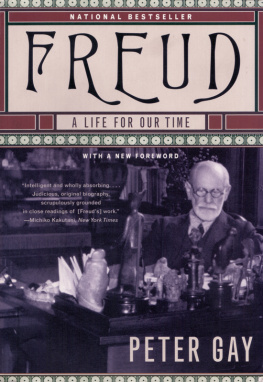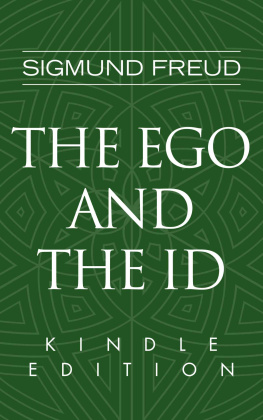4954
AN OUTLINE OF PSYCHO-ANALYSIS
(1940)
4955
Intentionally left blank
4956
AN OUTLINE OF PSYCHO-ANALYSIS
The aim of this brief work is to bringtogether the tenets of psycho-analysis and to state them, as itwere, dogmatically - in the most concise form and in the mostunequivocal terms. Its intention is naturally not to compel beliefor to arouse conviction.
The teachings of psycho-analysisare based on an incalculable number of observations andexperiences, and only someone who has repeated those observationson himself and on others is in a position to arrive at a judgementof his own upon it.
PARTI
CHAPTER I
THEPSYCHICAL APPARATUS
Psycho-analysis makes a basic assumption, thediscussion of which is reserved to philosophical thought but thejustification for which lies in its results. We know two kinds ofthings about what we call our psyche (or mental life): firstly, itsbodily organ and scene of action, the brain (or nervous system)and, on the other hand, our acts of consciousness, which areimmediate data and cannot be further explained by any sort ofdescription. Everything that lies between is unknown to us, and thedata do not include any direct relation between these two terminalpoints of our knowledge. If it existed, it would at the most affordan exact localization of the processes of consciousness and wouldgive us no help towards understanding them.
An Outline Of Psycho-Analysis
4957
Our two hypotheses start out fromthese ends or beginnings of our knowledge. The first is concernedwith localization. We assume that mental life is the function of anapparatus to which we ascribe the characteristics of being extendedin space and of being made up of several portions - which weimagine, that is, as resembling a telescope or microscope orsomething of the kind. Notwithstanding some earlier attempts in thesame direction, the consistent working-out of a conception such asthis is a scientific novelty.
We have arrived at our knowledgeof this psychical apparatus by studying the individual developmentof human beings. To the oldest of these psychical provinces oragencies we give the name of id. It contains everything thatis inherited, that is present at birth, that is laid down in theconstitution - above all, therefore, the instincts, which originatefrom the somatic organization and which find a first psychicalexpression here in forms unknown to us.
Under the influence of the realexternal world around us, one portion of the id has undergone aspecial development. From what was originally a cortical layer,equipped with the organs for receiving stimuli and witharrangements for acting as a protective shield against stimuli, aspecial organization has arisen which henceforward acts as anintermediary between the id and the external world. To this regionof our mind we have given the name of ego.
Here are the principalcharacteristics of the ego. In consequence of thepre-established connection between sense perception and muscularaction, the ego has voluntary movement at its command. It has thetask of self-preservation. As regards external events, itperforms that task by becoming aware of stimuli, by storing upexperiences about them (in the memory), by avoiding excessivelystrong stimuli (through flight), by dealing with moderate stimuli(through adaptation) and finally by learning to bring aboutexpedient changes in the external world to its own advantage(through activity). As regards internal events, in relationto the id, it performs that task by gaining control over thedemands of the instincts, by deciding whether they are to beallowed satisfaction, by postponing that satisfaction to times andcircumstances favourable in the external world or by suppressingtheir excitations entirely. It is guided in its activity byconsideration of the tensions produced by stimuli, whether thesetensions are present in it or introduced into it. The raising ofthese tensions is in general felt as unpleasure and theirlowering as pleasure. It is probable, however, that what isfelt as pleasure or unpleasure is not the absolute height ofthis tension but something in the rhythm of the changes in them.The ego strives after pleasure and seeks to avoid unpleasure. Anincrease in unpleasure that is expected and foreseen is met by asignal of anxiety; the occasion of such an increase, whetherit threatens from without or within, is known as a danger.From time to time the ego gives up its connection with the externalworld and withdraws into the state of sleep, in which it makesfar-reaching changes in its organization. It is to be inferred fromthe state of sleep that this organization consists in a particulardistribution of mental energy.
This oldest portion of the psychicalapparatus remains the most important throughout life; moreover, theinvestigations of psycho-analysis started with it.
An Outline Of Psycho-Analysis
4958
The long period of childhood,during which the growing human being lives in dependence on hisparents, leaves behind it as a precipitate the formation in his egoof a special agency in which this parental influence is prolonged.It has received the name of super-ego. In so far as thissuper-ego is differentiated from the ego or is opposed to it, itconstitutes a third power which the ego must take into account.
An action by the ego is as itshould be if it satisfies simultaneously the demands of the id, ofthe super-ego and of reality - that is to say, if it is able toreconcile their demands with one another. The details of therelation between the ego and the super-ego become completelyintelligible when they are traced back to the childsattitude to its parents. This parental influence of course includesin its operation not only the personalities of the actual parentsbut also the family, racial and national traditions handed onthrough them, as well as the demands of the immediate socialmilieu which they represent. In the same way, the super-ego,in the course of an individuals development, receivescontributions from later successors and substitutes of his parents,such as teachers and models in public life of admired socialideals. It will be observed that, for all their fundamentaldifference, the id and the super-ego have one thing in common: theyboth represent the influences of the past - the id the influence ofheredity, the super-ego the influence, essentially, of what istaken over from other people - whereas the ego is principallydetermined by the individuals own experience, that is byaccidental and contemporary events.
This general schematic picture ofa psychical apparatus may be supposed to apply as well to thehigher animals which resemble man mentally. A super-ego must bepresumed to be present wherever, as is the case with man, there isa long period of dependence in childhood. A distinction between egoand id is an unavoidable assumption. Animal psychology has not yettaken in hand the interesting problem which is here presented.
An Outline Of Psycho-Analysis
4959
CHAPTER II
THETHEORY OF THE INSTINCTS
The power of the id expresses the true purposeof the individual organisms life. This consists in thesatisfaction of its innate needs. No such purpose as that ofkeeping itself alive or of protecting itself from dangers by meansof anxiety can be attributed to the id. That is the task of theego, whose business it also is to discover the most favourable andleast perilous method of obtaining satisfaction, taking theexternal world into account. The super-ego may bring fresh needs tothe fore, but its main function remains the limitation ofsatisfactions.
The forces which we assume toexist behind the tensions caused by the needs of the id are called

